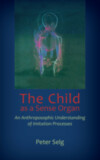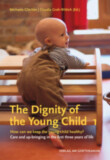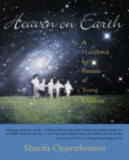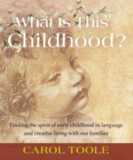You Are Your Child's First Teacher Edition 4 Revised & Updated
Encouraging Your Child’s Natural Development from Birth to Age Six
- Publisher
SteinerBooks - ISBN 9781952166211
- Language English
- Pages 348 pp.
- Size 6" x 9"
“I feel strongly that we don’t need another authority or set of rules by which to raise children, and I remind parents that Steiner himself never had any children. But if we can enlarge our understanding of child and adult development to encompass the whole human being—body, mind, emotions, and spirit—then we will be better equipped to make our own decisions based on a combination of cognitive and intuitive knowledge.” (preface)
This classic of early childhood education and parenting, the first book in America to popularize the insights of Rudolf Steiner regarding the developmental needs of young children, is now available in a newly revised and updated fourth edition.
Some of the most important learning years happen before a child reaches school age. But children are not little adults—they learn and grow in radically different ways at different ages, especially in the tender early years of life.
In You Are Your Child’s First Teacher, Rahima Baldwin Dancy explains the different stages of learning that children go through from birth to age six, giving parents and caregivers the wisdom and understanding to enrich the natural development of all children, in the right way at the right time.
A trusted classic for over twenty years, this revised and updated fourth edition contains resources and additional information on discipline, early childhood programs, toilet training, using home life as curriculum, and more. From language and cognitive development to appropriate toys and nourishing your child’s artistic abilities, Dancy speaks up for a rational approach to childrearing, one that helps children be children while we fulfill our important role as parents and first teachers.
.....
“Here is an extraordinary work for those who want to develop a truly intelligent child and, in the process, unlock new levels of their own intelligence and spirit.”
— Joseph Chilton Pearce, author of Magical Child and Evolution's End
“This is a terrific book, packed with commonsense advice on the real basics of healthy mental and emotional development. Rahima is a wise and knowledgeable guide for parents struggling to raise good kids in a challenging world. Someday your children will than you for reading this book!”
— Jane M. Healy, PhD, author of Different Learners and Your Child’s Growing Mind
C O N T E N T S:
Preface to the Revised Edition
Acknowledgments
1. You Are Your Child’s First Teacher
A Unique Opportunity • Parents’ Dilemma Today • Cultural Dilemmas • Lack of Support for Mothering • A Way of Seeing Children’s Development: Children Are Not Little Adults! • The Child’s Changing Consciousness • The Role of the Child’s Individuality • How Children Learn in the First Seven Years • Our Task as First Teachers • Trusting Ourselves • Recommended Resources
2. Home Life as the Basis for All Learning
Home Life Is Undervalued in Our Culture • Why Is It So Difficult to Be Home with Children Today? • Consciously Creating a Home • Four Levels of Home Life • Home Life as the Curriculum for the Young Child • Recommended Resources
3. Giving Birth and Being Born
What Was Birth Like for Your Baby? • Gentle Birth Choices • What if There are Complications during Labor or Birth? • Why the Choices You Make are Important • The Transition for the New Mother • Recommended Resources
4. Birth to Three: Growing Down and Waking Up
Growing into the Body • What Is Your Baby Like between Six Weeks and Eight Months of Age? • Learning to Walk • The Second Year: Mastering Language • The Emergence of Thinking • The Young Child’s Senses • The Emerging Sense of Self • Recommended Resources
5.Helping Your Baby’s Development
Stimulating and Protecting the Sensitivity of the Newborn • What Is It Like Being with a Newborn? • What Is It Like from Months 2 to 12? • Physical Development • The Development of Intelligence • Emotional Development • Language Development • Toys for the First Year • Recommended Resources
6. Helping Your Toddler’s Development
Encouraging Balanced Development • Dealing with Negative
Behavior • Encouraging the Development of Language and Understanding • The Beginnings of Imaginative Play • Providing a Rich Environment for Your Toddler • Toys and Equipment • Recommended Resources
7. Rhythm in Home Life
Creating Rhythm in Daily Life • The Rhythm of the Week • Celebrating Festivals and the Rhythm of the Year • Celebrating Birthdays • Recommended Resources
8. Discipline and Other Parenting Issues
The Question of Discipline • Why Does Parenting Take So Much Energy? • Can You Work toward Rhythm with an Infant? • What About Weaning? • Crying Babies • What About Going Back to Work? • How Long Do Children’s Senses Need Protecting? • Toilet Training • Separation Anxiety and “Helicopter Parenting” • Cabin Fever • Other Parenting Issues • Recommended Resources
9. Nourishing Your Child’s Imagination and Creative Play
Three Stages of Play • Experiencing the World through Play • The Importance of Play in Intellectual Development • Ways to Encourage Your Child’s Creative Play • Nourishing Your Child’s Imaginative Play through Stories • Recommended Resources
10. Developing Your Child’s Artistic Ability
Understanding Children’s Drawings and Development • The Experience of Color • Watercolor Painting with Young Children • Metamorphosis in Later Stages of Life • Modeling with Beeswax • Making Things with Your Children • Freeing Your Own Inner Artist • Recommended Resources
11. Encouraging Your Child’s Musical Ability
Make a Joyful Noise • Music and Cognitive Development • Singing with Your Child • Movement Games and Fingerplays • Pentatonic Music and the “Mood of the Fifth” • What About Music and Dance Lessons? • Recommended Resources
12. Cognitive Development and Early Childhood Education
Academic vs. Play-Based Learning • Why Not Introduce Academics Early? • The Value of Preschool • Evaluating Early Childhood Programs • LifeWays and Waldorf Early Childhood Programs • LifeWays and Waldorf in the Home • The Value of Mixed-Age Programs • When Is Your Child Ready for First Grade? • What Happens around Age Seven? • Beginning Academic Work: The Waldorf Approach • What About the Advanced or Gifted Child? • Recommended Resources
13. Common Questions from Parents about Screen Time, Smart Phones and More
Preparation for Life • Computers • Balanced Development • Screen Time • Toys • Video Games • Self-Discipline with Your Phone • Fever and Illness • What Makes Children So Different from One Another? • Religion and Young Children • Recommended Resources
14. Help for the Journey
Conscious Parenting Is a Process • In Conclusion
Appendix: Rudolf Steiner and Waldorf Education
NotesBibliography
Index
Rahima Baldwin Dancy
Rahima Baldwin Dancy is internationally known as a Waldorf early childhood and parenting educator, following a career as a midwife and childbirth activist. She was a Waldorf kindergarten teacher, a founding board member of LifeWays North America and co-director of Rainbow Bridge LifeWays Program. Rahima and her husband, Agaf, have raised four adult children and enjoy five grandchildren; they live in a cohousing community in Boulder, Colorado. She currently provides online courses for parents and childcare providers through LifeWaysNorthAmerica.org.








